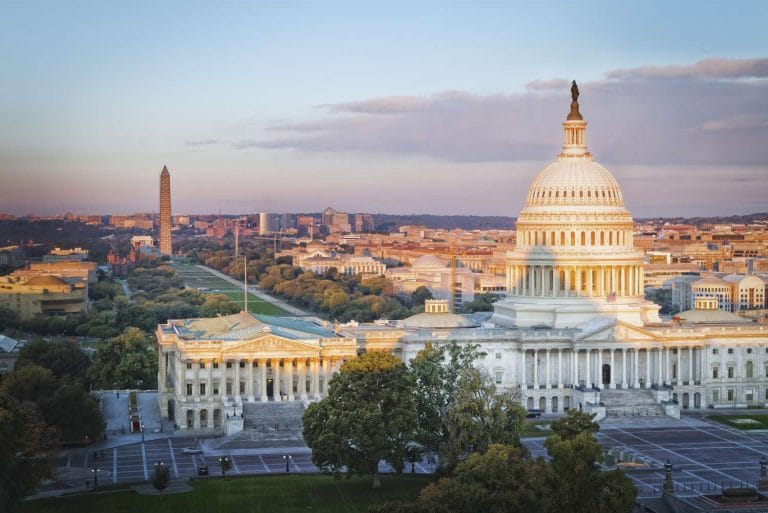🎧 Listen to This Article
A Bold Move or Economic Misstep?
Washington state’s decision to impose retail sales taxes on tech and digital services has sparked intense reactions across the industry. This legislation, Senate Bill 5814, which will apply sales tax to a wide array of tech-related services, marks a dramatic shift in the state’s approach to taxation. But is this move a strategic adaptation to an evolving economy or a political misstep with deep economic consequences?
As the bill passes through the state legislature, businesses are left grappling with what it means for their operations and the broader tech ecosystem in Washington, one of the nation’s leading tech hubs. The question is: How much will this new tax cost Washington’s tech economy, and is the state betting on the wrong horse?
Wealth Tax, Payroll Tax, and Property Hikes: Washington’s 2025 Budget Strategy
The Legislative Logic: Economic Modernization or a Step Backward?
At its core, the bill aims to update Washington’s outdated excise tax code. According to the bill’s sponsors, this move is essential for modernizing the state’s tax structure as it shifts from a goods-based to a service- and tech-driven economy. In theory, the tax is designed to align the state’s tax base with economic trends.
But here’s the catch: Washington’s tech sector accounts for nearly 22% of the state’s economy. By targeting services that have been key to the region’s growth, like advertising agencies, software development, and IT support, the state risks undermining the sector that has driven the local economy’s meteoric rise over the last few decades.
The state predicts the tax will generate $2.9 billion in the next biennium and $4.7 billion over the next four years. This revenue is earmarked for essential services like education and healthcare. However, is taxing the future of Washington’s economy, the tech sector, really the right solution to close a $16 billion budget gap?
The Contrarian Argument: A Taxing Blow to Innovation
While the tax supporters argue that it’s a necessary step to fund public services, the tech industry has a different view. Phillip Anderson, vice president of Seattle Software Developers, calls the move “a real blow” to the industry, which he says is already burdened with high taxes. “To impose additional tax obligations on an industry that helped build Seattle’s economy and arguably put it on the map is discouraging,” he states.
Adam Brazg, CEO of Bilberry, echoes these concerns, warning that imposing new taxes on tech services could harm the innovation that has made Washington a tech powerhouse. “We hope policymakers have thoughtfully considered the long-term impact of this tax on the state’s digital economy,” Brazg said, adding that lawmakers should carefully model the potential risks to future growth.
This bill could negatively impact Washington’s tech scene by making it harder for local firms to compete. Kelly Fukai, CEO of the Washington Technology Industry Association, argues that the new tax will reduce competitiveness, putting local tech companies at a disadvantage compared to firms in states with more favorable tax climates. This additional tax burden could prove too much for companies that already have to compete on a national scale.
A Tax That Might Undermine Washington’s Competitive Edge
John Rubino, a marketing firm partner, also points out that smaller businesses will feel the brunt of this tax. Many advertising and marketing agencies in Washington are small to mid-sized enterprises that will now be forced to collect sales tax. This cost could be passed on to consumers or result in slimmer margins for businesses struggling with tight budgets.
The tax, which will apply a 6.5% sales tax with additional local levies, will undoubtedly increase the cost of doing business. But is this the right time to impose such a tax? With the federal government moving towards lower corporate tax rates and neighboring states like Oregon and Idaho offering tax-friendly environments, Washington risks losing its competitive edge.
What Happens Next?
Despite the controversy, Senate Bill 5814 has passed through the legislative process, passing narrowly in both chambers. However, the final word lies with Governor Bob Ferguson, who has yet to confirm whether he will sign the law. If Ferguson does sign the bill, the tax will take effect in October 2025; just as many businesses are still trying to recover from the economic fallout of the COVID-19 pandemic.
The Long-Term Impact: A Policy Misstep?
It’s crucial to ask: Does Washington’s move signal a short-sighted solution to a deeper fiscal issue? By taxing the sector that could lead the state’s economic future, Washington may be shooting itself in the foot. Instead of burdening tech and digital services, lawmakers could have explored alternative tax measures, such as reforming the state’s existing business tax code or tapping into more progressive revenue streams that don’t stifle innovation.
Ultimately, this tax might generate short-term revenue, but at what cost? It risks eroding the competitive advantage of Washington’s thriving tech ecosystem, potentially driving companies to consider other states or jurisdictions for their future operations. Washington lawmakers may have found a quick fix to their budget woes. Still, in doing so, they might have unintentionally undermined the sector that has been driving the state’s economic engine for years.
For further details, clarification, contributions, or any concerns regarding this article, please get in touch with us at editorial@tax.news. We value your feedback and are committed to providing accurate and timely information. Please note that our privacy policy will handle all inquiries.



